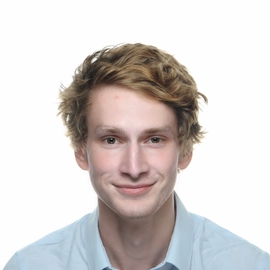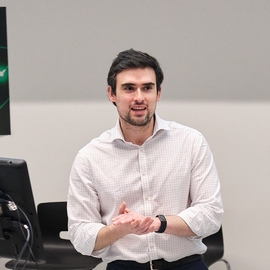Abstract
Coordinating decision-making capacities using optimization is a key factor in the success of chemical companies. However, this coordination is often inhibited by expensive, legally-constrained, or proprietary subproblem models. We propose two variations on how model-based (surrogate) derivative-free optimization (DFO) methods can be used to coordinate subproblems with few connecting variables. When these surrogates are convex quadratic, they can be efficiently exploited using semidefinite programming techniques. We compare the performance of these two variations with a distributed optimization solver (ADMM), a model-based, and a direct DFO solver (Py-BOBYQA and DIRECTL). This comparison is done on four variations of an economic-environmental feedstock blending optimization case study. While ADMM seems to display faster initial convergence, explorative DFO optimization solvers seem promising in escaping local minimizers, especially in lower dimensions.
Publication
Computer Aided Chemical Engineering

Research Scientist at Meta, former PhD student at OptiML (2021-2025)
Final-year PhD candidate working at the intersection of optimization and Machine Learning. I investigate how data-driven techniques can aid the optimization of integrated manufacturing and supply chain systems, with a focus on black-box optimization, optimization with embedded neural networks, and Reinforcement Learning for combinatorial optimization. By collaborating with industry, I ensure my case studies are industrially relevant and that my algorithms respect the organizational and business considerations of the process industries.

Principal Investigator of OptiML
Antonio del Rio Chanona is the head of the Optimisation and Machine Learning for Process Systems Engineering group based in thee Department of Chemical Engineering, as well as the Centre for Process Systems Engineering at Imperial College London. His work is at the forefront of integrating advanced computer algorithms from optimization, machine learning, and reinforcement learning into engineering systems, with a particular focus on bioprocess control, optimization, and scale-up. Dr. del Rio Chanona earned his PhD from the Department of Chemical Engineering and Biotechnology at the University of Cambridge, where his outstanding research earned him the prestigious Danckwerts-Pergamon award for the best PhD dissertation of 2017. He completed his undergraduate studies at the National Autonomous University of Mexico (UNAM), which laid the foundation for his expertise in engineering.